Basil seeds and chia seeds are two popular superfoods that have gained attention for their numerous health benefits. This article delves into the nutritional profiles, culinary uses, and potential health impacts of these seeds, helping you make an informed choice based on your individual health needs.
Basil seeds, also known as sabja seeds, are derived from the sweet basil plant (Ocimum basilicum). These small black seeds are unique due to their ability to absorb water and swell, forming a gelatinous texture that makes them a delightful addition to various dishes. They are commonly used in Asian cuisines, particularly in drinks and desserts, providing not only flavor but also a nutritional boost.
Chia seeds, originating from the Salvia hispanica plant, are tiny seeds that come in black or white varieties. They are celebrated for their high nutrient density and remarkable ability to absorb liquid, creating a gel-like consistency. Chia seeds are often touted as a superfood due to their rich content of essential nutrients, making them a popular choice among health enthusiasts.
When comparing the nutritional profiles of basil seeds and chia seeds, both are excellent sources of fiber, omega-3 fatty acids, and antioxidants. However, they differ in specific nutrient concentrations that can influence their health benefits.
Both basil and chia seeds are rich in dietary fiber, which is crucial for digestive health. Chia seeds typically offer a higher fiber content per serving, making them particularly effective for those looking to manage their weight or improve their gut health.
Chia seeds are particularly renowned for their omega-3 fatty acid content, which is essential for heart health. While basil seeds do contain some omega-3s, the amounts are significantly lower, positioning chia seeds as the superior option for those seeking to enhance their intake of this vital nutrient.
Basil seeds boast several health benefits, making them a valuable addition to your diet:
- Digestive Health: The high fiber content in basil seeds aids in regulating bowel movements and preventing constipation.
- Hydration: When soaked in water, basil seeds swell and create a gel-like substance, helping to maintain hydration levels.
- Blood Sugar Support: Some studies suggest that basil seeds may help regulate blood sugar levels, making them beneficial for individuals with diabetes.
Chia seeds are celebrated for their extensive health benefits, including:
- Heart Health: Their high omega-3 fatty acid content can help lower cholesterol levels and reduce the risk of heart disease.
- Bone Health: Chia seeds are rich in calcium and phosphorus, essential for maintaining healthy bones.
- Energy Boost: The combination of protein, fiber, and healthy fats in chia seeds makes them an excellent source of sustained energy.
Basil seeds can be easily incorporated into your meals. Consider adding them to:
- Smoothies for added texture and nutrition.
- Desserts like puddings or jellies.
- Drinks, such as lemonades or herbal teas, for a refreshing twist.
Chia seeds are incredibly versatile. You can enjoy them in:
- Smoothies or smoothie bowls for a nutrient-packed breakfast.
- Oatmeal or yogurt for added crunch and nutrition.
- Baking recipes, where they can act as a binding agent.
While both basil and chia seeds are generally safe for consumption, moderation is key. Overindulgence may lead to digestive discomfort, such as bloating or gas. It is advisable to start with small quantities and gradually increase your intake to gauge your body’s response.

What Are Basil Seeds?
Basil seeds, derived from the sweet basil plant, are small black seeds that have gained popularity due to their unique properties and health benefits. When soaked in water, these seeds develop a gelatinous texture, making them an interesting addition to various culinary creations. Often confused with chia seeds, basil seeds have their own distinctive characteristics that set them apart.
Basil seeds are not just a culinary delight; they are packed with essential nutrients that can contribute to overall health. They are an excellent source of dietary fiber, which aids in digestion and promotes a feeling of fullness. This can be particularly beneficial for those looking to manage their weight.
The fiber content in basil seeds plays a crucial role in maintaining digestive health. By promoting regular bowel movements, basil seeds can help prevent constipation and enhance gut health. The gel-like substance formed when these seeds are soaked can also soothe the digestive tract, making it easier for the body to process food.
One of the most remarkable features of basil seeds is their ability to absorb water. When soaked, they can expand up to 30 times their size, creating a cooling effect that can help maintain hydration, especially in hot weather. This makes them an ideal ingredient for refreshing beverages and summer desserts.
Beyond digestion and hydration, basil seeds may offer additional health benefits. Some studies suggest that they can help regulate blood sugar levels, making them a potential ally for those managing diabetes. The antioxidants present in basil seeds may also contribute to overall health by combating oxidative stress.
Incorporating basil seeds into your diet is simple and versatile. Here are some popular ways to enjoy them:
- Add soaked basil seeds to smoothies for added texture and nutrition.
- Mix them into yogurt or oatmeal for a nutritious breakfast.
- Use them as a topping for desserts, such as puddings or fruit salads.
- Incorporate them into beverages, like lemonades or teas, for a refreshing twist.
While basil seeds are generally safe for most people, moderation is key. Overconsumption can lead to digestive discomfort, so it’s advisable to start with small amounts and gradually increase as tolerated. Additionally, those with allergies to basil or related plants should exercise caution.
Unlike chia seeds, which are often hailed for their omega-3 fatty acids, basil seeds offer a different nutrient profile. They are lower in omega-3s but higher in certain antioxidants, making them a unique addition to a balanced diet. Their gelatinous texture and ability to absorb liquid set them apart, offering a different culinary experience.
In summary, basil seeds are a nutritious and versatile ingredient that can enhance both health and culinary experiences. Their unique properties make them a valuable addition to a variety of dishes, providing essential nutrients and potential health benefits.
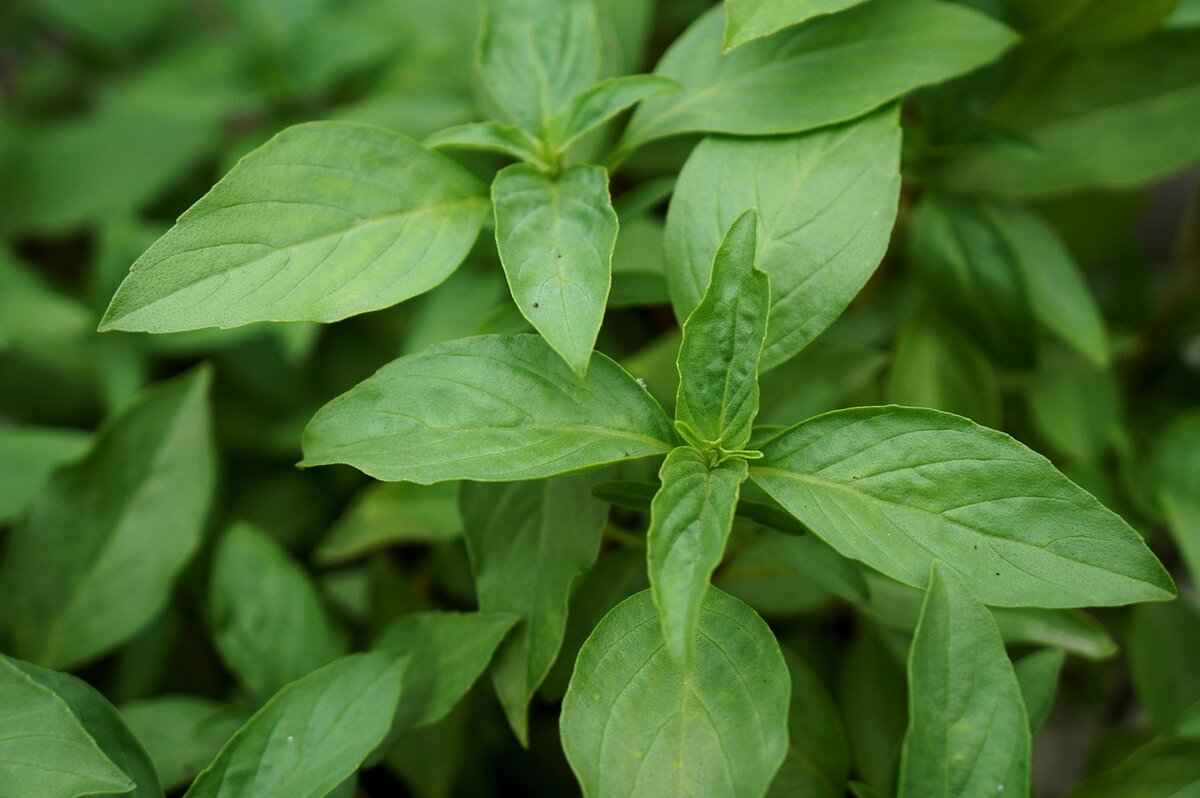
What Are Chia Seeds?
Chia seeds, derived from the Salvia hispanica plant, are small, nutrient-dense seeds that have gained popularity in the health and wellness community. These seeds, which can be found in both black and white varieties, are celebrated not just for their tiny size but also for their remarkable ability to absorb liquid. When soaked, chia seeds swell and form a gel-like consistency, making them a versatile ingredient in various recipes.
Chia seeds are a powerhouse of nutrients, providing a rich source of essential vitamins and minerals. They contain:
- Omega-3 Fatty Acids: Essential for heart health and cognitive function.
- Fiber: Promotes digestive health and aids in weight management.
- Protein: Supports muscle repair and growth.
- Antioxidants: Help combat oxidative stress and inflammation.
- Calcium: Important for bone health and muscle function.
The health benefits of chia seeds are extensive. Here are some key advantages:
- Heart Health: The high levels of omega-3 fatty acids in chia seeds can help lower cholesterol levels, thereby reducing the risk of heart disease.
- Weight Management: The fiber content in chia seeds promotes a feeling of fullness, which can help control appetite and reduce overall calorie intake.
- Bone Health: With significant amounts of calcium and phosphorus, chia seeds contribute to maintaining strong bones and preventing osteoporosis.
- Blood Sugar Control: Chia seeds may help stabilize blood sugar levels, making them a suitable choice for those managing diabetes.
Incorporating chia seeds into your diet is easy and versatile. Here are some popular ways to enjoy them:
- Smoothies: Blend chia seeds into your favorite smoothies for added nutrition.
- Oatmeal: Stir chia seeds into oatmeal or overnight oats for an extra nutrient boost.
- Baking: Use chia seeds as an egg substitute in vegan baking or sprinkle them on top of breads and muffins.
- Chia Pudding: Mix chia seeds with milk or a dairy-free alternative and let them soak overnight for a delicious pudding.
While chia seeds are generally safe for most people, it’s important to consume them in moderation. Overeating these seeds can lead to digestive discomfort, including bloating or gas. It’s advisable to start with a small amount and increase gradually to see how your body reacts.
In conclusion, chia seeds are not only a nutritious addition to your diet but also a versatile ingredient that can enhance the flavor and texture of various dishes. Their numerous health benefits, combined with their easy incorporation into meals, make them a popular choice among health enthusiasts.
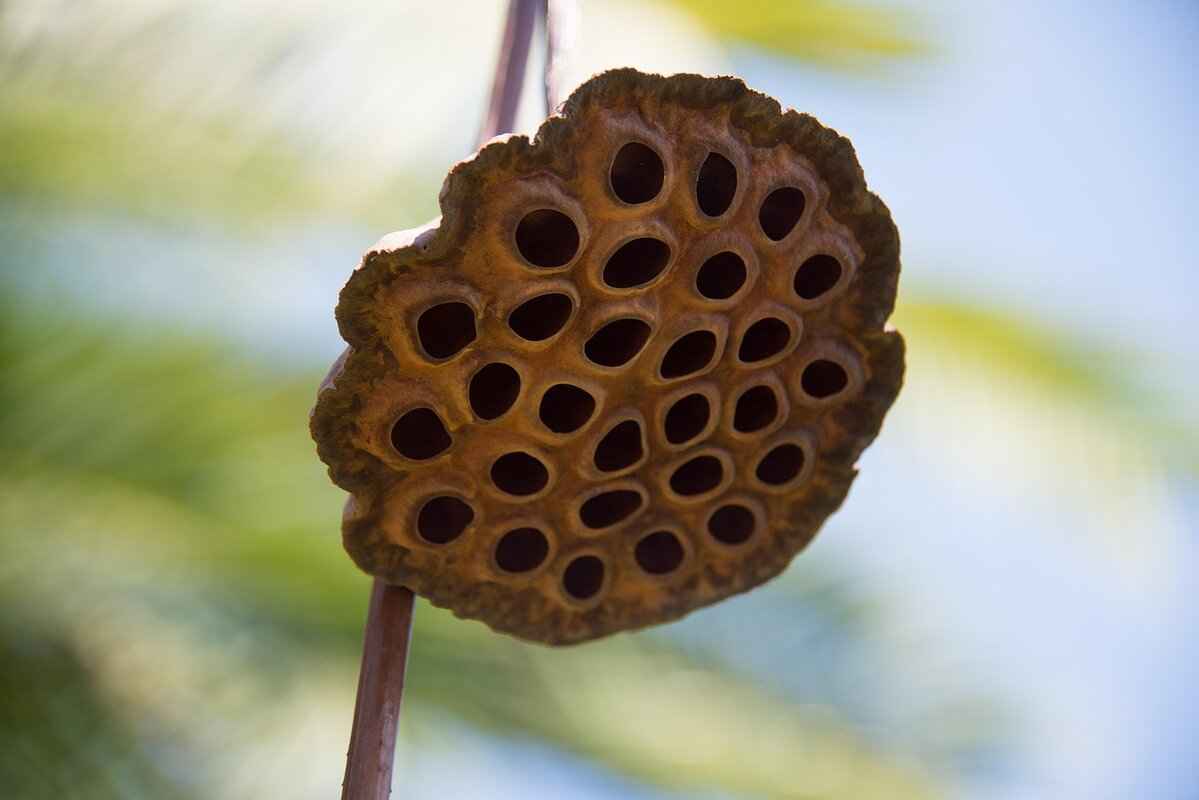
How Do Basil Seeds Compare to Chia Seeds Nutritionally?
When it comes to the nutritional comparison of basil seeds and chia seeds, both seeds stand out as powerful sources of essential nutrients. They are widely recognized for their health benefits, but their specific nutrient profiles can influence which one might be better suited to your dietary needs. This analysis dives deeper into their nutritional content, highlighting their strengths and potential health impacts.
Basil seeds and chia seeds are both celebrated for their rich nutrient content, particularly in terms of fiber, omega-3 fatty acids, and antioxidants. However, they differ significantly in their specific nutrient profiles, which can impact their health benefits.
Both seeds are excellent sources of dietary fiber, which is crucial for digestive health. Basil seeds contain approximately 5 grams of fiber per tablespoon, while chia seeds boast an impressive 10 grams per tablespoon. This higher fiber content in chia seeds can aid in weight management and promote a feeling of fullness, making them a popular choice for those looking to control their appetite.
When it comes to omega-3 fatty acids, chia seeds take the lead. They are particularly rich in alpha-linolenic acid (ALA), a type of omega-3 that supports heart health. In contrast, basil seeds also contain omega-3s but in lower concentrations. This makes chia seeds the superior choice for those seeking to boost their omega-3 intake and improve cardiovascular health.
Both seeds are rich in antioxidants, which play a crucial role in combating oxidative stress and inflammation in the body. Basil seeds contain flavonoids and phenolic compounds, while chia seeds are packed with quercetin and chlorogenic acid. These antioxidants contribute to overall health, but the specific types found in each seed may offer different protective benefits.
In terms of caloric content, both seeds are relatively low-calorie options, making them suitable for various diets. However, chia seeds provide more nutrients per calorie, which enhances their status as a superfood. For individuals focusing on nutrient density, chia seeds may be the better option.
Chia seeds are a powerhouse of essential minerals, including calcium, magnesium, and phosphorus, which are vital for maintaining strong bones. On the other hand, basil seeds provide iron and zinc, which are important for immune function and energy metabolism. Depending on your specific health needs, one seed may be more beneficial than the other.
When deciding between basil seeds and chia seeds, consider your dietary goals. If you’re looking for a higher fiber content and omega-3 fatty acids, chia seeds may be more advantageous. Conversely, if you seek to incorporate unique textures and flavors into your meals, basil seeds can offer a delightful addition.
Ultimately, both seeds can be beneficial when included in a balanced diet. They can be easily incorporated into smoothies, salads, and baked goods, enhancing both the nutritional value and flavor of your meals. Remember to consume them in moderation to avoid any digestive discomfort, especially if you’re new to including these seeds in your diet.
Fiber Content
When it comes to enhancing our diets with nutritious ingredients, basil seeds and chia seeds stand out as popular choices. Both seeds are renowned for their impressive health benefits, particularly their high dietary fiber content. This article delves deeper into the fiber content of these seeds, highlighting their roles in digestive health and weight management.
Fiber is an essential component of a balanced diet, playing a crucial role in maintaining digestive health. It helps regulate bowel movements, prevents constipation, and supports a healthy gut microbiome. Additionally, fiber contributes to feelings of fullness, which can aid in weight management by reducing overall calorie intake.
Both basil seeds and chia seeds are excellent sources of dietary fiber, but they differ significantly in their fiber content per serving. On average, chia seeds contain about 10 grams of fiber per ounce (28 grams), while basil seeds provide approximately 6 grams of fiber per ounce. This higher fiber content in chia seeds can be particularly beneficial for those looking to enhance their fiber intake.
The fiber found in basil seeds is primarily soluble fiber, which absorbs water and forms a gel-like substance in the digestive tract. This property helps to slow digestion, allowing for better nutrient absorption and promoting a feeling of fullness. Additionally, the gel-like consistency can help soothe the digestive tract, making basil seeds a gentle option for those with sensitive stomachs.
Chia seeds are particularly effective for weight management due to their high fiber content. When consumed, they can absorb up to 12 times their weight in water, expanding in the stomach and creating a sense of fullness. This can help curb hunger and reduce the likelihood of overeating. Furthermore, the soluble fiber in chia seeds helps regulate blood sugar levels, preventing spikes and crashes that can lead to cravings.
While both seeds offer valuable fiber content, chia seeds are the superior choice for those specifically looking to increase their fiber intake. However, incorporating both seeds into your diet can provide a wider range of nutrients and health benefits. For instance, you can add chia seeds to smoothies, oatmeal, or baked goods, while basil seeds can be used in drinks, desserts, or as a topping for yogurt.
Despite their numerous benefits, it’s essential to consume both basil seeds and chia seeds in moderation. Overconsumption may lead to digestive discomfort, such as bloating or gas. It’s advisable to gradually increase your intake and ensure adequate hydration, as both seeds absorb a significant amount of water.
In conclusion, both basil seeds and chia seeds are excellent sources of dietary fiber, each offering unique benefits for digestive health and weight management. While chia seeds may provide a higher fiber content, incorporating both into your diet can enhance overall health and well-being.
Omega-3 Fatty Acids
When it comes to nutritional powerhouses, both chia and basil seeds have garnered significant attention for their health benefits. In particular, the focus on has made chia seeds a popular choice among health enthusiasts. This article delves into the specifics of omega-3 content in both seeds and their implications for overall health.
Omega-3 fatty acids are essential fats that the body cannot produce on its own, meaning they must be obtained through diet. These fats are crucial for various bodily functions, including:
- Heart Health: Omega-3s are known to reduce triglycerides, lower blood pressure, and decrease the risk of heart disease.
- Brain Function: They play a vital role in cognitive function and may help in reducing the risk of Alzheimer’s disease.
- Inflammation Reduction: Omega-3s can help lower inflammation in the body, which is linked to many chronic diseases.
Chia seeds are often hailed as one of the richest plant sources of omega-3 fatty acids, primarily in the form of alpha-linolenic acid (ALA). A typical serving of chia seeds (about 28 grams) contains approximately 5 grams of ALA. This high content makes chia seeds a fantastic option for those looking to increase their omega-3 intake, especially for individuals following a vegetarian or vegan diet.
On the other hand, basil seeds also provide omega-3 fatty acids, but in significantly lower amounts compared to chia seeds. A serving of basil seeds contains about 0.1 grams of ALA. While they still offer some omega-3 benefits, they are not as potent a source as chia seeds. This difference is crucial for individuals specifically seeking to boost their omega-3 levels for health reasons.
The abundant omega-3 content in chia seeds contributes to various health benefits:
- Cardiovascular Health: Regular consumption of chia seeds can help lower bad cholesterol levels and improve heart health.
- Weight Management: The high fiber content in chia seeds can promote a feeling of fullness, aiding in weight control.
- Improved Mood: Omega-3s are linked to better mental health and can help alleviate symptoms of depression and anxiety.
To fully benefit from the omega-3 fatty acids in chia seeds, consider the following tips:
- Add to Smoothies: Blend chia seeds into your morning smoothie for a nutritious boost.
- Make Chia Pudding: Soak chia seeds in almond milk overnight to create a delicious pudding.
- Sprinkle on Salads: Use chia seeds as a topping for salads to enhance texture and nutrition.
While omega-3 fatty acids are generally safe and beneficial, excessive intake can lead to potential side effects, such as:
- Digestive Issues: Overconsumption of chia seeds may cause bloating or gastrointestinal discomfort.
- Blood Thinning: High doses of omega-3s can affect blood clotting, particularly for individuals on blood-thinning medications.
In summary, while both chia and basil seeds offer health benefits, chia seeds stand out as the superior source of omega-3 fatty acids. Incorporating chia seeds into your diet can significantly enhance your omega-3 intake, contributing to better heart health and overall well-being.
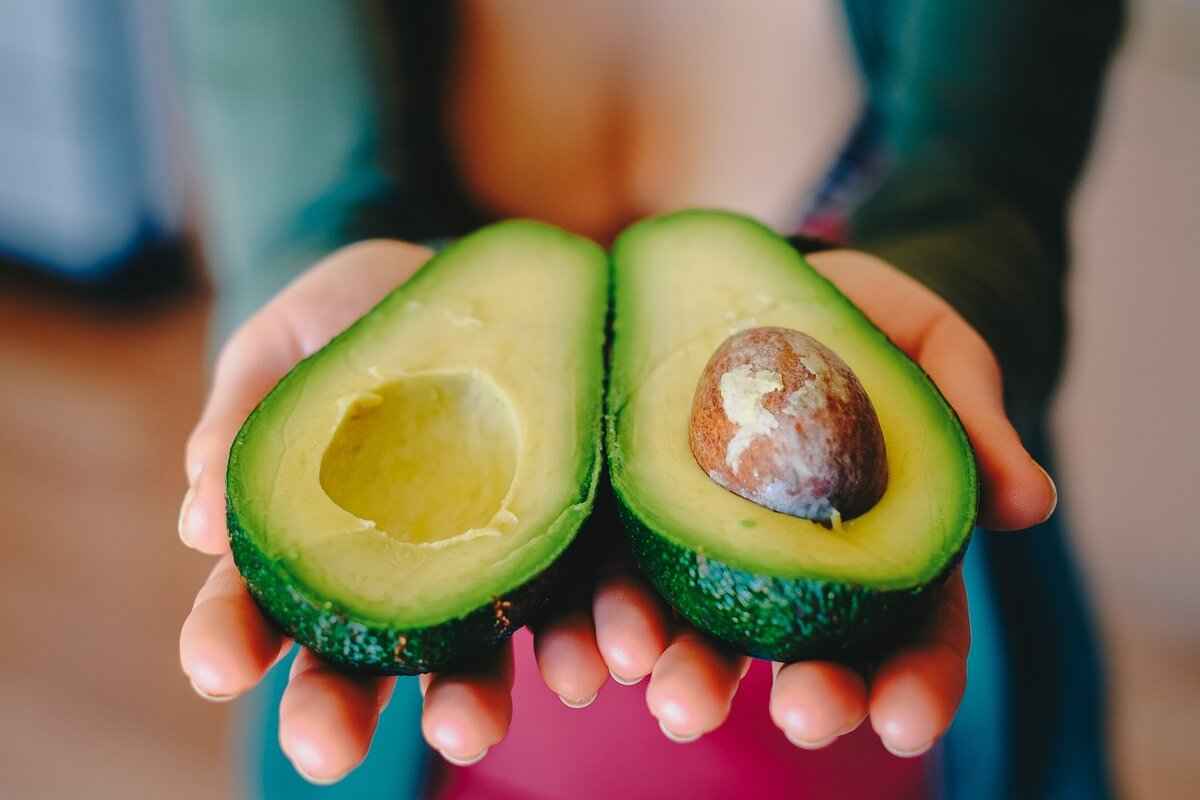
What Are the Health Benefits of Basil Seeds?
Basil seeds, often overlooked in the realm of superfoods, hold a plethora of health benefits that can enhance your overall well-being. These small, black seeds, derived from the sweet basil plant, are not only versatile in culinary applications but also packed with essential nutrients. Below, we delve into the various health benefits of basil seeds, highlighting why they should be a staple in your diet.
Basil seeds offer a range of health advantages, making them a valuable addition to a balanced diet. Here are some of the key benefits:
- Aiding Digestion: The high fiber content in basil seeds promotes digestive health. Fiber is crucial for regulating bowel movements, preventing constipation, and supporting a healthy gut microbiome. By incorporating basil seeds into your diet, you can enjoy improved digestion and overall gastrointestinal comfort.
- Promoting Hydration: When soaked in water, basil seeds swell and form a gel-like substance. This unique property not only enhances their texture but also aids in hydration. Consuming basil seeds can help maintain fluid balance in the body, especially during hot weather or after intense physical activity.
- Supporting Blood Sugar Levels: Some studies suggest that basil seeds may help regulate blood sugar levels. The soluble fiber in these seeds can slow down the absorption of sugar in the bloodstream, potentially benefiting those with diabetes or those looking to maintain stable energy levels throughout the day.
- Rich in Antioxidants: Basil seeds are a good source of antioxidants, which play a vital role in combating oxidative stress and inflammation in the body. Antioxidants are essential for protecting cells from damage and may reduce the risk of chronic diseases.
- Weight Management: The fiber and gel-forming properties of basil seeds can contribute to a feeling of fullness, which may help curb appetite and support weight management efforts. Including these seeds in meals can make it easier to control portion sizes and reduce unhealthy snacking.
Integrating basil seeds into your daily meals is simple and versatile. Here are some practical ways to enjoy their benefits:
- In Smoothies: Add a tablespoon of soaked basil seeds to your favorite smoothie for added texture and nutrition.
- In Desserts: Use basil seeds in puddings, yogurt, or fruit salads for a nutritious twist.
- In Beverages: Mix basil seeds into lemonade or iced tea for a refreshing drink that also hydrates.
- In Salads: Sprinkle soaked basil seeds over salads to enhance both flavor and health benefits.
In conclusion, basil seeds are a powerhouse of nutrition, offering numerous health benefits that can support digestion, hydration, blood sugar regulation, and more. By incorporating these tiny seeds into your diet, you can enjoy a delicious and healthful boost to your daily nutrition.
Digestive Health
is a vital aspect of overall well-being, and the foods we consume play a significant role in maintaining it. Among the many foods that can enhance digestive health, basil seeds stand out due to their impressive fiber content. This article delves into how basil seeds contribute to digestive health, their benefits, and practical ways to incorporate them into your diet.
Basil seeds, also known as sabja seeds, are derived from the sweet basil plant. When soaked in water, these tiny black seeds absorb liquid and swell, forming a gel-like consistency. This unique property is essential for digestive health. The high fiber content in basil seeds aids in regulating bowel movements, effectively preventing constipation and promoting regularity.
Dietary fiber is crucial for maintaining a healthy digestive system. It adds bulk to the stool, making it easier to pass through the intestines. The fiber in basil seeds can help:
- Promote Regular Bowel Movements: By absorbing water and expanding in the digestive tract, basil seeds help to create a softer stool, reducing the risk of constipation.
- Support Gut Health: A fiber-rich diet can foster the growth of beneficial gut bacteria, enhancing overall gut health and function.
- Reduce Digestive Discomfort: Regular consumption of fiber can alleviate symptoms such as bloating and irregularity, leading to a more comfortable digestive experience.
Integrating basil seeds into your meals is simple and can be both delicious and nutritious. Here are some practical ideas:
- Soaked in Water: Soak basil seeds in water for about 30 minutes, then add them to smoothies or juices for a nutritious boost.
- In Desserts: Use soaked basil seeds in puddings, yogurt, or as a topping for desserts to add texture and health benefits.
- In Salads: Sprinkle soaked basil seeds over salads to enhance their nutritional value while adding a unique crunch.
While basil seeds are generally safe for most people, it’s essential to consume them in moderation. Overconsumption may lead to digestive discomfort, such as bloating or gas. Always ensure they are properly soaked before consumption to prevent choking hazards and ensure optimal digestion.
In conclusion, basil seeds are a powerhouse of fiber that can significantly enhance digestive health. Their ability to regulate bowel movements and prevent constipation makes them a valuable addition to a balanced diet. By incorporating these seeds into your meals, you can enjoy their numerous health benefits while promoting a healthier digestive system.
Hydration and Cooling Effects
Basil seeds, scientifically known as Ocimum basilicum, have gained popularity not only for their culinary uses but also for their remarkable health benefits. One of the most notable properties of basil seeds is their ability to absorb water and swell, forming a gel-like substance. This unique characteristic makes them an excellent choice for maintaining hydration, especially during hot weather.
When soaked in water, basil seeds can expand up to 10 times their original size. This swelling is due to the soluble fiber content in the seeds, which interacts with water to create a viscous gel. This gel-like texture is not only intriguing but also serves multiple purposes, particularly in terms of hydration. The gel can help to retain moisture in the body, making it an ideal ingredient for those looking to stay hydrated.
In hot climates or during the summer months, staying hydrated is crucial for overall health. Dehydration can lead to fatigue, headaches, and decreased cognitive function. Incorporating basil seeds into your diet can be a refreshing way to combat these issues. For instance, adding soaked basil seeds to smoothies, juices, or even plain water can enhance your fluid intake while providing additional health benefits.
Moreover, the cooling effect of basil seeds is particularly beneficial in traditional medicine practices. In many cultures, basil seeds are used to create refreshing drinks that help lower body temperature. This cooling effect is not just a myth; consuming foods that promote hydration and cooling can significantly improve comfort levels during hot weather.
In addition to hydration, basil seeds are rich in antioxidants, which help combat oxidative stress in the body. This dual action of providing hydration while delivering essential nutrients makes basil seeds a valuable addition to a balanced diet. They can be consumed in various forms, such as in puddings, salads, or as a topping for desserts.
For individuals who may struggle with hydration, particularly athletes or those engaging in outdoor activities, basil seeds can serve as a natural electrolyte booster. Their ability to absorb water and release it gradually can help maintain fluid balance during intense physical exertion, thereby enhancing performance and recovery.
In conclusion, the hydration and cooling effects of basil seeds make them a powerful ally in promoting health and well-being, especially in warm weather. By incorporating these seeds into your daily routine, you can enjoy a refreshing and nutritious way to stay hydrated while reaping the many benefits they have to offer.
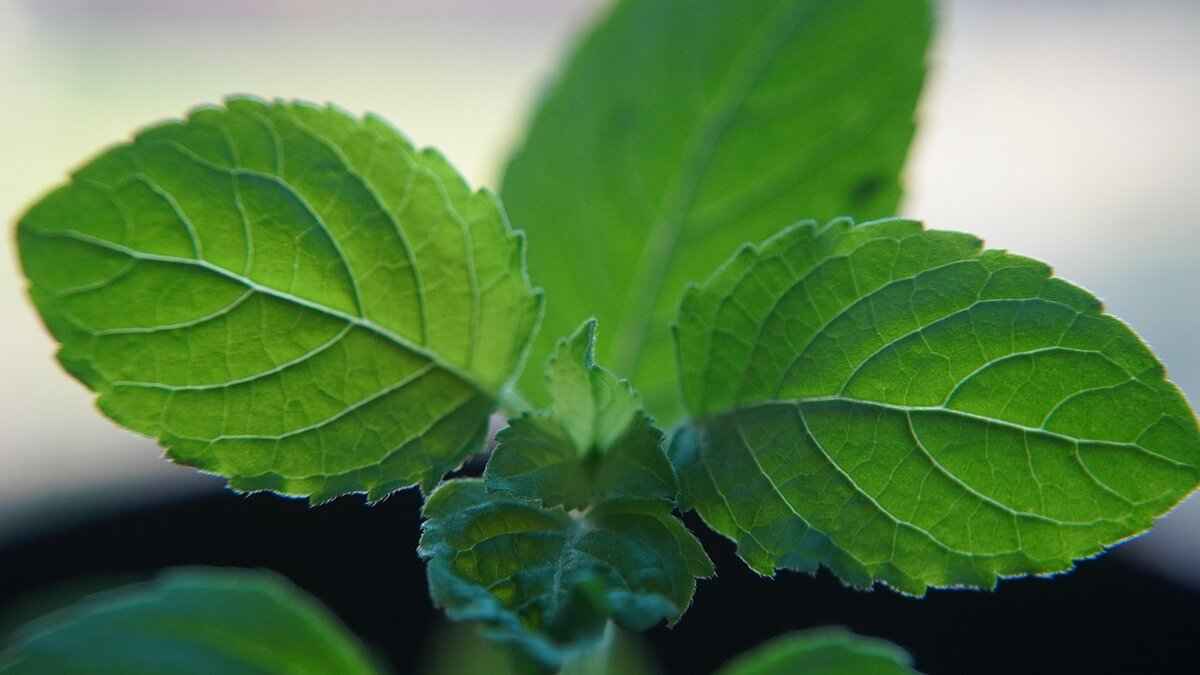
What Are the Health Benefits of Chia Seeds?
Chia seeds, derived from the Salvia hispanica plant, have gained significant popularity as a superfood due to their impressive nutrient profile and numerous health benefits. These tiny seeds are not only versatile but also packed with essential nutrients, making them an excellent addition to any diet.
Chia seeds are often praised for their various health benefits. Here are some of the most notable:
- Heart Health: Chia seeds are incredibly rich in omega-3 fatty acids, which are essential for maintaining heart health. These fatty acids help lower cholesterol levels and reduce inflammation, significantly decreasing the risk of heart disease. Regular consumption of chia seeds can contribute to better cardiovascular health.
- Bone Health: These seeds are an excellent source of essential minerals such as calcium, phosphorus, and magnesium. These nutrients are crucial for maintaining strong bones and preventing conditions like osteoporosis. Just two tablespoons of chia seeds provide about 18% of the daily recommended intake of calcium.
- Weight Management: Chia seeds are high in fiber, which promotes a feeling of fullness and helps control appetite. The soluble fiber in chia seeds absorbs water and expands in the stomach, leading to increased satiety and reduced overall calorie intake. This makes them a great option for those looking to manage their weight.
- Digestive Health: The high fiber content also supports healthy digestion. Chia seeds can help regulate bowel movements and prevent constipation, contributing to overall digestive well-being.
- Energy Boost: Chia seeds are a great source of energy. They contain a balanced mix of protein, fats, and carbohydrates, making them an ideal snack for athletes and those with active lifestyles. Consuming chia seeds can provide sustained energy throughout the day.
- Hydration: When soaked in liquid, chia seeds form a gel-like consistency, which can help keep you hydrated. This property makes them a popular addition to smoothies and other beverages, especially in hot weather.
- Antioxidant Properties: Chia seeds are rich in antioxidants, which help combat oxidative stress and may reduce the risk of chronic diseases. These antioxidants can also aid in skin health, promoting a youthful appearance.
Incorporating chia seeds into your diet is easy and versatile. Here are some practical ways to enjoy them:
- Add chia seeds to your morning smoothie for an extra nutrient boost.
- Mix them into oatmeal or yogurt for added texture and nutritional value.
- Use chia seeds as a thickening agent in soups and sauces.
- Sprinkle them on salads or cereal for a crunchy topping.
- Make chia pudding by soaking them in milk or a milk alternative overnight, then adding your favorite fruits and nuts.
In conclusion, chia seeds are a powerhouse of nutrients and offer a variety of health benefits, making them a valuable addition to any diet. Whether you are looking to improve heart health, boost energy levels, or enhance digestive function, chia seeds can help you achieve your health goals.
Heart Health
Heart disease remains one of the leading causes of mortality worldwide, making it essential to adopt a heart-healthy lifestyle. Among various dietary choices, seeds have emerged as nutritional powerhouses that can significantly contribute to cardiovascular health. In this section, we will delve into the heart health benefits of chia seeds, which are particularly rich in omega-3 fatty acids, and explore how they can help lower cholesterol levels and reduce the risk of heart disease.
Omega-3 fatty acids play a crucial role in maintaining heart health. They are known to reduce inflammation, lower blood pressure, and decrease triglyceride levels. By incorporating omega-3-rich foods like chia seeds into your diet, you can promote a healthier cardiovascular system.
Research indicates that chia seeds can help lower LDL (bad) cholesterol levels while increasing HDL (good) cholesterol. This balance is vital for reducing the risk of heart disease. The soluble fiber found in chia seeds binds to cholesterol in the digestive system, aiding in its excretion and preventing it from entering the bloodstream.
Chronic inflammation is a significant contributor to heart disease. The omega-3 fatty acids in chia seeds are known for their anti-inflammatory properties. By consuming chia seeds regularly, you may help mitigate inflammation in the body, thus lowering the risk of developing cardiovascular issues.
- Breakfast Boost: Add chia seeds to your morning oatmeal or yogurt for a nutritious start to your day.
- Smoothie Power: Blend chia seeds into your favorite smoothies for added texture and health benefits.
- Baking Delight: Use chia seeds in baking recipes, such as muffins or energy bars, for a nutritional upgrade.
- Hydrating Drink: Soak chia seeds in water or juice to create a refreshing drink that promotes hydration.
Beyond lowering cholesterol, chia seeds offer other heart-healthy benefits. They are a good source of essential minerals like calcium and magnesium, which play a role in maintaining healthy blood pressure levels. Additionally, the high fiber content aids in weight management, another important factor in heart health.
While chia seeds are generally safe for most people, moderation is key. Consuming excessive amounts can lead to digestive discomfort due to their high fiber content. It is advisable to start with a small amount and gradually increase your intake to allow your body to adjust.
In conclusion, chia seeds are a valuable addition to a heart-healthy diet. Their rich omega-3 fatty acid content, ability to lower cholesterol levels, and anti-inflammatory properties make them an excellent choice for anyone looking to improve their cardiovascular health. By incorporating chia seeds into your daily meals, you can take proactive steps toward maintaining a healthy heart.
Bone Health
Maintaining strong bones is essential for overall health, particularly as we age. Among the various dietary components that contribute to bone health, chia seeds stand out due to their impressive nutritional profile. These tiny seeds, rich in essential minerals, offer significant benefits that help prevent conditions such as osteoporosis.
Calcium is the most abundant mineral in the human body and plays a critical role in building and maintaining strong bones. It is vital for bone density and strength. Without adequate calcium intake, bones can become weak and brittle, leading to an increased risk of fractures.
Phosphorus works closely with calcium to form hydroxyapatite, the mineral complex that gives bones their rigidity. It also aids in the formation of DNA and RNA, which are essential for cell growth and repair. A balanced ratio of calcium to phosphorus is crucial for optimal bone health.
Chia seeds are an excellent source of both calcium and phosphorus. Just two tablespoons of chia seeds can provide approximately 18% of the recommended daily intake of calcium and a notable amount of phosphorus. This makes them a powerful ally in maintaining bone density and strength, especially for those who may not consume dairy products or other traditional sources of these minerals.
In addition to calcium and phosphorus, chia seeds are rich in other nutrients that contribute to bone health:
- Magnesium: This mineral is crucial for converting vitamin D into its active form, which helps the body absorb calcium effectively.
- Omega-3 Fatty Acids: These healthy fats have anti-inflammatory properties that can help reduce the risk of bone loss.
- Protein: Chia seeds are a good source of plant-based protein, which is essential for bone repair and growth.
Integrating chia seeds into your daily meals is easy and versatile. Here are some practical ways to do so:
- Chia Pudding: Mix chia seeds with your favorite milk or yogurt and let them soak overnight for a nutritious breakfast.
- Smoothies: Add a tablespoon of chia seeds to your smoothies for an extra boost of nutrients.
- Baking: Incorporate chia seeds into muffins, breads, or energy bars for added texture and health benefits.
While chia seeds are generally safe for most people, it’s important to consume them in moderation. Due to their high fiber content, excessive intake can lead to digestive discomfort. It’s advisable to start with small amounts and gradually increase your intake while ensuring adequate fluid consumption.
In conclusion, chia seeds are a nutrient-dense superfood that can significantly enhance bone health. With their high levels of calcium, phosphorus, and other essential nutrients, these seeds are a simple yet effective addition to any diet aimed at maintaining strong bones and preventing osteoporosis.
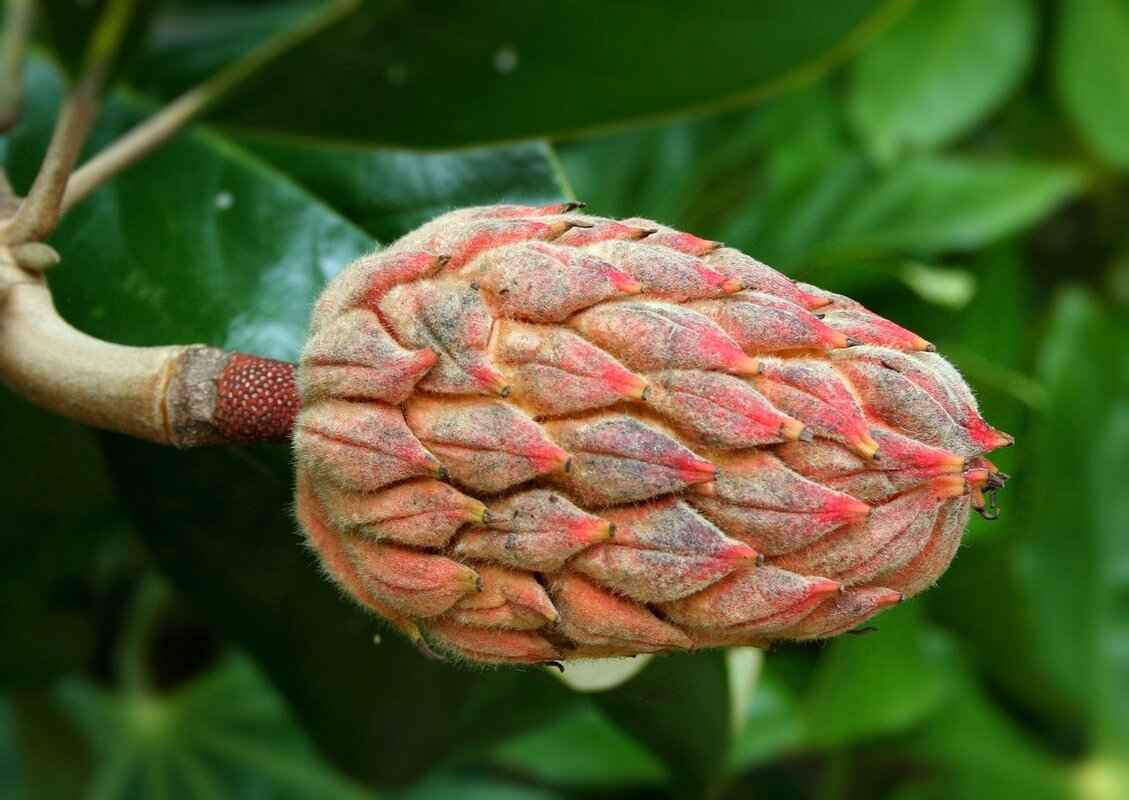
How Can You Incorporate Basil Seeds into Your Diet?
Basil seeds, known for their nutritional benefits and unique texture, can be a delightful addition to your meals. Their ability to absorb water and form a gel-like consistency makes them versatile in various culinary creations. Here’s how you can easily incorporate basil seeds into your diet.
Basil seeds can be effortlessly mixed into smoothies, enhancing both flavor and nutritional value. Soaking the seeds for about 30 minutes before adding them to your smoothie allows them to swell, providing a satisfying texture. Combine them with fruits like bananas, berries, or mangoes, and a splash of your favorite milk or yogurt for a delicious and healthy drink.
Incorporating basil seeds into desserts can elevate your sweet treats. Whether you’re making puddings, jellies, or parfaits, these seeds can add a delightful crunch. For instance, mix soaked basil seeds into a coconut milk pudding or layer them in a fruit parfait to create an eye-catching and nutritious dessert option.
Adding basil seeds to beverages is a popular practice in many cultures. You can mix them into drinks like lemonade, iced tea, or even cocktails. The seeds not only contribute to the drink’s visual appeal but also provide a refreshing texture. Simply soak the seeds, add them to your drink, and enjoy a revitalizing beverage.
Basil seeds can also be sprinkled on salads for an extra crunch. After soaking, they can be added to green salads, grain bowls, or even fruit salads. This not only enhances the dish’s texture but also boosts its fiber content, contributing to your daily nutrition.
For a quick and nutritious breakfast, consider adding soaked basil seeds to your yogurt or oatmeal. They can help increase the meal’s satiety, keeping you full longer. Top your yogurt with fruits, nuts, and a sprinkle of basil seeds for a delicious and wholesome start to your day.
For a healthy snack, you can make energy balls using basil seeds. Combine them with ingredients like oats, nut butter, honey, and dark chocolate chips. Form the mixture into small balls and refrigerate. These energy bites are perfect for a quick snack on the go.
Basil seeds can be included in baked goods like muffins, bread, or cookies. They add a unique flavor and texture that can complement various recipes. Just mix them into the batter or use them as a topping before baking for an added crunch.
In summary, basil seeds are a versatile ingredient that can be easily incorporated into various meals and snacks. Their unique texture and nutritional benefits make them an excellent addition to smoothies, desserts, beverages, salads, and more. By experimenting with these ideas, you can enjoy the benefits of basil seeds while enhancing your culinary creations.

How Can You Incorporate Chia Seeds into Your Diet?
Incorporating chia seeds into your diet can be both enjoyable and beneficial for your overall health. These tiny seeds are not only versatile but also packed with nutrients, making them a popular choice among health enthusiasts. Here are several creative ways to include chia seeds in your meals:
- Smoothies: One of the easiest ways to consume chia seeds is by adding them to your favorite smoothies. Simply blend your choice of fruits, vegetables, and a tablespoon of chia seeds for an added nutrient boost. The seeds will absorb liquid and create a thicker texture, enhancing the smoothie experience.
- Overnight Oats: Chia seeds can be mixed with oats, milk (or a milk alternative), and your favorite sweeteners to create a delicious and nutritious breakfast. Let the mixture sit overnight, allowing the chia seeds to swell and soften, resulting in a creamy and satisfying meal.
- Baking: Incorporate chia seeds into your baking recipes. Whether you’re making muffins, bread, or pancakes, adding chia seeds can enhance the nutritional profile of your baked goods. They can also serve as a substitute for eggs in vegan recipes when mixed with water to create a gel-like consistency.
- Chia Pudding: A popular way to enjoy chia seeds is by making chia pudding. Combine chia seeds with milk and your choice of sweeteners and flavors, such as vanilla or cocoa powder. Let it sit in the refrigerator for a few hours or overnight to thicken, then top with fruits, nuts, or granola before serving.
- Salads: Sprinkle chia seeds on top of salads for added crunch and nutrition. They can also be mixed into dressings to create a thicker texture and enhance the flavor profile.
- Soups and Sauces: Use chia seeds as a thickening agent in soups and sauces. When added to liquid, they absorb moisture and expand, which can help create a heartier consistency without the need for flour or cornstarch.
- Energy Bars: Homemade energy bars are another great way to include chia seeds. Combine them with nuts, dried fruits, and a binding agent like honey or nut butter to create a nutritious snack that’s perfect for on-the-go energy.
When incorporating chia seeds into your diet, it’s essential to consume them in moderation. Due to their high fiber content, excessive consumption may lead to digestive discomfort. A typical serving size of chia seeds is about 1-2 tablespoons per day, which can provide a significant boost to your nutrient intake without overwhelming your digestive system.
In summary, chia seeds are a fantastic addition to a variety of meals, offering numerous health benefits. Their versatility allows you to experiment with different recipes and find what works best for your taste buds. By incorporating chia seeds into your diet, you can enjoy their nutritional benefits while enhancing the flavor and texture of your meals.

Are There Any Side Effects of Basil and Chia Seeds?
When considering the incorporation of basil seeds and chia seeds into your diet, it is crucial to understand not only their health benefits but also any potential side effects. While both seeds are generally regarded as safe for consumption, moderation is key to avoiding any adverse reactions.
Basil seeds, although nutritious, can lead to certain side effects if consumed in excessive amounts. Here are some important considerations:
- Digestive Issues: Overindulgence in basil seeds can result in digestive discomfort, such as bloating or gas. This is primarily due to their high fiber content, which, while beneficial in moderation, can overwhelm the digestive system if consumed in large quantities.
- Allergic Reactions: Some individuals may experience allergic reactions to basil seeds. Symptoms can include itching, swelling, or difficulty breathing. If you have a known allergy to basil or related plants, it is advisable to avoid these seeds.
- Interference with Medications: Basil seeds may interact with certain medications, particularly those affecting blood sugar levels. If you are on medication for diabetes or any other condition, consult your healthcare provider before adding basil seeds to your diet.
Chia seeds are often hailed as a superfood, but they too can pose risks if not consumed responsibly. Consider the following:
- Gastrointestinal Distress: Similar to basil seeds, excessive consumption of chia seeds can lead to gastrointestinal issues, including bloating, gas, and diarrhea. This is largely attributed to their high fiber content, which can be beneficial but may cause discomfort in large amounts.
- Choking Hazard: Chia seeds can absorb up to 12 times their weight in water, forming a gel-like consistency. If consumed dry or without sufficient liquid, they may swell in the throat, posing a choking risk. Always ensure chia seeds are adequately hydrated before consumption.
- Blood Thinning Effects: Chia seeds contain omega-3 fatty acids, which have blood-thinning properties. If you are taking anticoagulant medications, it is essential to monitor your chia seed intake and consult with a healthcare provider.
To fully enjoy the health benefits of basil and chia seeds while minimizing risks, consider the following tips:
- Moderation is Key: Aim to consume these seeds in moderation. A typical serving size is about 1-2 tablespoons per day, depending on your dietary needs and tolerance.
- Hydrate Well: Always soak chia seeds in water or another liquid before consumption to prevent choking hazards and facilitate digestion.
- Consult a Professional: If you have existing health conditions or are on medication, it is wise to consult with a healthcare professional before adding these seeds to your diet.
In conclusion, while both basil and chia seeds offer numerous health benefits, it is essential to consume them mindfully to avoid potential side effects. By adhering to recommended serving sizes and ensuring proper hydration, you can enjoy the nutritional advantages these seeds provide without discomfort.
Frequently Asked Questions
- What are the main differences between basil seeds and chia seeds?
Basil seeds are derived from the sweet basil plant and are known for their gelatinous texture when soaked, while chia seeds come from the Salvia hispanica plant and are celebrated for their high nutrient density. Nutritionally, chia seeds have a higher fiber and omega-3 fatty acid content compared to basil seeds.
- Can I use basil seeds and chia seeds interchangeably in recipes?
While you can substitute one for the other in some recipes, they have different textures and nutritional profiles. Basil seeds swell and create a gel-like substance, whereas chia seeds absorb liquid and form a thicker gel. Consider the desired outcome of your dish before swapping!
- How should I prepare basil seeds before consuming them?
Basil seeds should be soaked in water for about 15-30 minutes until they swell and develop a gelatinous texture. This not only enhances their digestibility but also makes them a fun addition to drinks and desserts!
- Are there any health risks associated with consuming these seeds?
Both basil and chia seeds are generally safe for most people when consumed in moderation. However, overindulgence can lead to digestive discomfort, so it’s best to start with small amounts and gradually increase your intake.
- Which seed is better for weight management?
Chia seeds are often considered the better choice for weight management due to their higher fiber content, which promotes satiety and helps control appetite. However, basil seeds also offer benefits and can be a great addition to a balanced diet.














